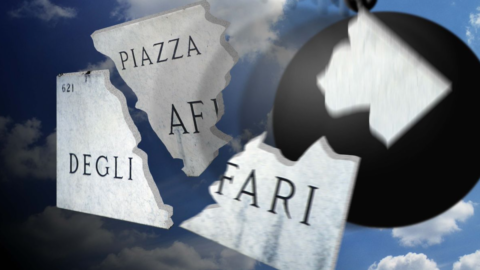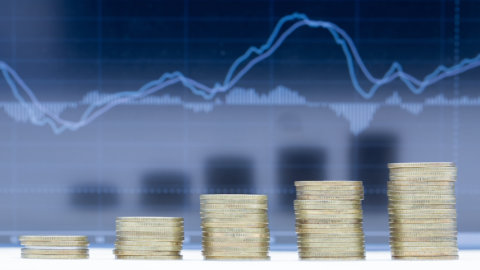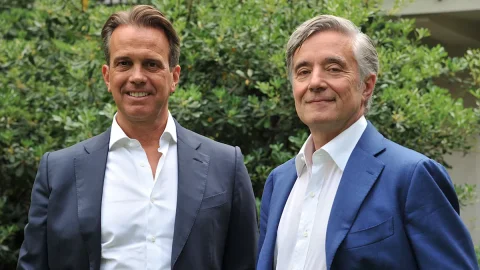Gallop the Bull in the Stock Exchanges of the East. In Shanghai, the Stock Exchange advances by another 2%, the highest since July 2011. In the last ten sessions, the list has risen by 15%. Such euphoria can be explained by the discount rate cut, the hope for new stimuli from the central bank and the effect of the new single platform with Hong Kong, which has multiplied the purchases arriving from abroad: Shanghai has already surpassed, for volumes, Tokyo.
Thanks to the fall of the yen against the dollar (119,44, its lowest level in seven years) and signs of economic recovery, the Japanese Nikkei index (+1%) reaches an all-time record since 2007. Such euphoria is justified by good new arrivals from the US stock exchanges. Indeed, the positive data on construction in October brought optimism back to Wall Street. The Dow Jones index and the S&P 500 advanced 0,58% and the Nasdaq 0,6%. The words of the Fed vice president, Stanley Fischer, also pushed the lists: if US inflation, thanks to the drop in crude oil, remains low, the Fed will have to extend the low rates. “We've always said we're data-driven,” Fischer stressed.
Climate of anticipation for the European Stock Exchanges, two days before the ECB directorate. The stock exchanges of London (+1,1%), Paris (+0,2%) and Madrid (+0,6%) are up, while Frankfurt is down by 0,3%. Positive closure also for the Milan Stock Exchange with the FtseMib index rising by 0,4% after having conducted a swing session between a minimum of 19.604 and a maximum of 19.930 points. New alarm signals are arriving from the real economy and from the geopolitical front which could push the central bank to bring forward the timing of its interventions.
OIL DOWN AGAIN, PUTIN'S BLOWN TO SAIPEM
The tug of war with Russia weighs more and more, increasingly in difficulty due to the plunge in oil prices, which resumed yesterday after the break on Monday: 2,12 dollars less at 66,88 for crude oil, while the Brent fell $2 to $70,54 a barrel). The Saudi prince al Feisal reiterated that his country will cut production only if other non-OPEC producers, led by Russia, do the same.
But Moscow's finances are under pressure: the ruble is slipping to its lowest level since 1998, the 10,4-year Moscow yield is now 35% while the payment of loans (XNUMX billion dollars) by the end of the year is expected to be problematic.
Vladimir Putin reacted by canceling the South Stream gas pipeline, a new transit route for Russian gas to Europe bypassing Ukrainian territory, in favor of a new project in Turkey. The impact for large suppliers is heavy: Salzgitter loses 7,4%. Things are worse at Saipem -10,8%, a level not seen since December 2008. The contract provides for heavy penalties in the event of breach, but for the company it is a new bolt from the blue, after a "horrible year". The impact on Eni, a 20% shareholder of the consortium, was modest, which ended the session with a 0,7% increase, while Tenaris gained 0,8%.
SPREADS LOW, QE CLOSING
The Russian crisis undoubtedly complicates the German situation. Yesterday the President of the Bundesbank Jens Weidmann revealed that the forecasts on the economy will certainly have to be revised downwards. But Weidmann added that there is no risk of recession in Europe, but only low structural growth that monetary policy cannot solve: it is yet another sign that on the eve of the ECB summit, Berlin remains against a government bond purchases.
The financial markets, on the contrary, are already discounting the intervention of the central bank, with purchases of government bonds, especially in the periphery. The yield on the ten-year BTP remains at its maximum at 2,01%. Meanwhile, the spread, at 126, is at its lowest since 2011. The gap between Spanish bonds and the Bund is at 111. The yield on the 0,69-year Bund is also down at record levels, reaching an all-time low of XNUMX %.
Meanwhile, JP Morgan analysts are making the first forecasts on European QE which could kick off in the first few months of 2015. “We expect a 500 billion euro government bond purchase programme, executed over the course of weekly average of 10 billion, equivalent to 60% of gross annual issues and over 200% of net ones”. JP Morgan expects only conventional bonds from all countries, including Greece, that have maturities between 2 and 10 years to be considered, even though they attribute a 25% probability of an extension beyond XNUMX-year bonds .
SALES OF FCA ACCELERATE, ALSO FLYING CNH
In Piazza Affari it was the day of the industrialists, driven by the Fiat Chrysler engine +2,9%, the highest since August 2001 at 10,58 euros in the wake of the good data on the group's sales in Italy (+5,9% 29,5 thousand units against +4,95% of the market) and in the USA by Chrysler which recorded its best November in the United States in the last 13 years, with sales up 20% to 170.839 vehicles. Even more brilliant Cnh Industrial (+3,7%).
Prysmian (+2,7%) and Finmeccanica (+1,8%) were also very positive. However, Brembo was slow (-0,36%) despite the announcement of the new plant for the production of aluminum calipers in Mexico. Among the small and mid caps, Landi Renzo falls (-2,92%) due to the fall in the price of crude oil, which makes LPG less convenient.
BANKS, SIGNS OF RECOVERY. AVIVA'S WEDDING SPIRITIES POLICIES
There is confirmation of the signs of a recovery in banking activity. The data communicated by the Abi on new mortgage disbursements in the first ten months of the year show a growth of 30,5% compared to the same period last year. Timid positive signs, for the first time in years, also for new loans to businesses for an amount of less than 1 million euros (almost 50% of new loans to businesses) which grew by 0,2% compared to the same period of the 'Last year.
While waiting for tomorrow's words from Mario Draghi, the titles of the sector are advancing: Unicredit is up by 1,1%, Ubi +2%, Pop.Emilia +2,8%. MontePaschi gains 0,4%, Banco Popolare +0,3%.
The insurance sector was animated by the billionaire wedding between Aviva and Friends Life: Cattolica Assicurazioni rose by 2,80% to 5,51 euro, Generali +0,29%. Unipol (+2,35%) and UnipolSai (+1,07%) rebound.
HONG KONG AND CHINA, TWO PLUGS FOR LUXURY. THUD OF FERRAGAMO
Difficult day for luxury. Tod's lost 2,9%. The fall of Salvatore Ferragamo was heavier (-4,4% to 20,72 euros), the worst blue chip of the session (with the exception of Saipem). A series of negative factors linked to the Russian crisis, the drop in crude oil (impact on sales in the Gulf countries), the street incidents in Hong Kong which could damage the sales of brands that in that area have their outlets. Ferragamo loses 24% since the beginning of the year.





